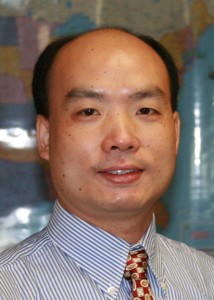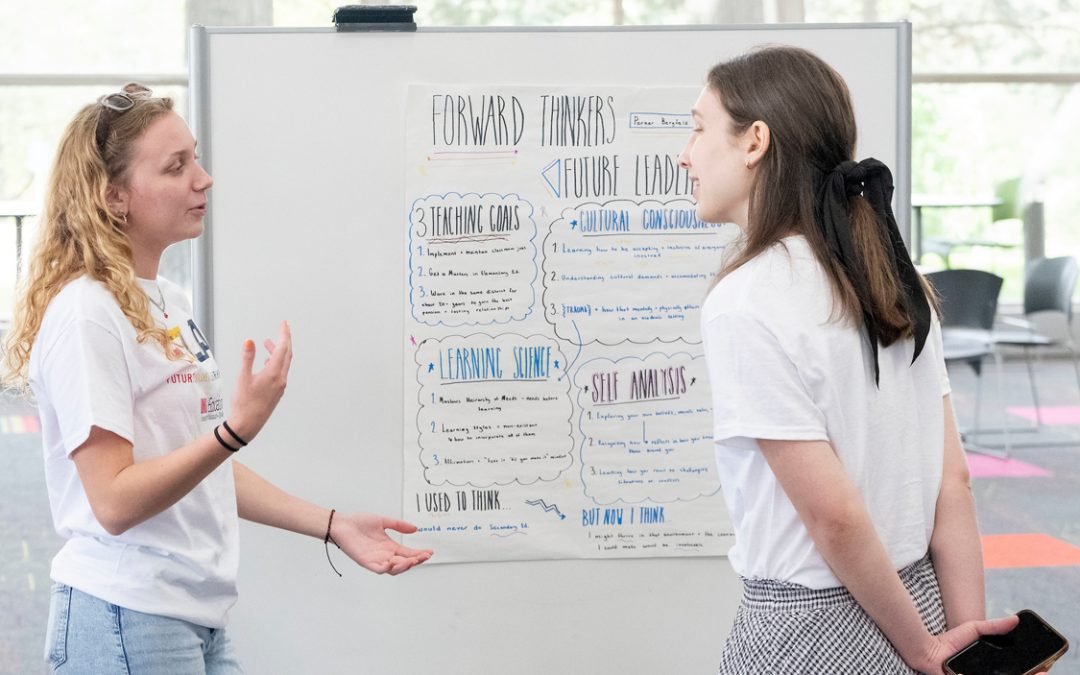Guoqiang Li, assistant professor of optometry at the University of Missouri–St. Louis, envisions a day when users of bifocals or trifocals won’t have to look down to read.
He recently received two grants totaling $640,000 for two separate projects. One grant, for $240,000 from the Wallace H. Coulter Foundation, will fund Li’s vision correction research, including the development of a low-cost, electro-optic adaptive lens with continuous focusing powers and high optical performance for near, intermediate and distance vision. In other words, the entire lens would be able to switch its focus power interchangeably between long-range and up-close viewing.
He also received a $400,000 grant from the National Institute of Biomedical Imaging and Bioengineering of the National Institutes of Health for a project in biomedical optical imaging incorporating active optics.
“I am honored to receive the prestigious grant from the National Institutes of Health and the career award from the Wallace H. Coulter Foundation,” Li said. “The grants provide the opportunity for us to investigate new optical devices for vision care and biomedical science.”
The adaptive lens for vision correction would be beneficial for people with multiple vision defects without the drawbacks of corrective bifocal and trifocal lenses.
Multifocal lenses offer a limited field of view for each vision task due to the varying prescriptions of the lens-within-a-lens concept. Users of these can experience dizziness, headaches and distorted viewing by gazing down to see things close up, such as when reading a book. Li’s invention would create an alternative to multifocal lenses, possibly even making them someday obsolete.
The biomedical optical imaging device allows the user to capture real-time images of living cells. The high performance of this system will enhance viewing of live cells and tissue, which could improve diagnosis of diseases. Li’s device also scans the cells electro-optically without the sample being disrupted through mechanic vibrations that are a problem with conventional imaging systems.
He is collaborating with colleagues in UMSL’s College of Optometry, Department of Physics and Astronomy and Department of Chemistry and Biochemistry to develop both devices.
Visit http://bit.ly/bufFXK to read a St. Louis Post-Dispatch story about Li’s work and grants.
More information:
http://www.umsl.edu/divisions/optometry/faculty/LiPage.html
http://www.umsl.edu/chemistry/
http://www.umsl.edu/~physics/















